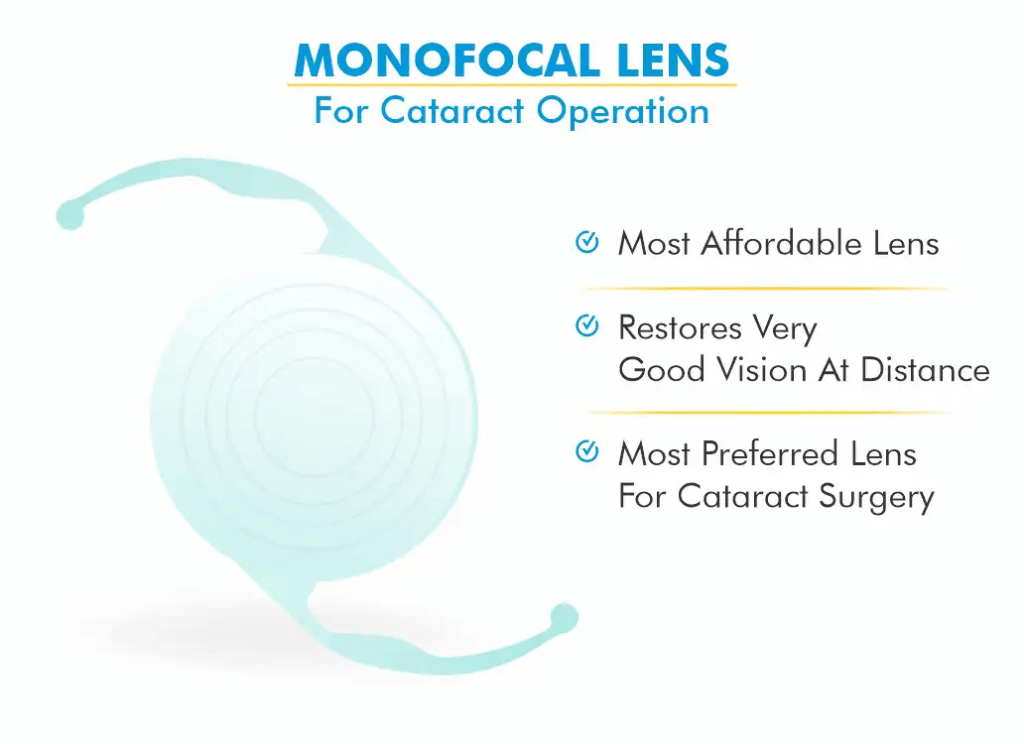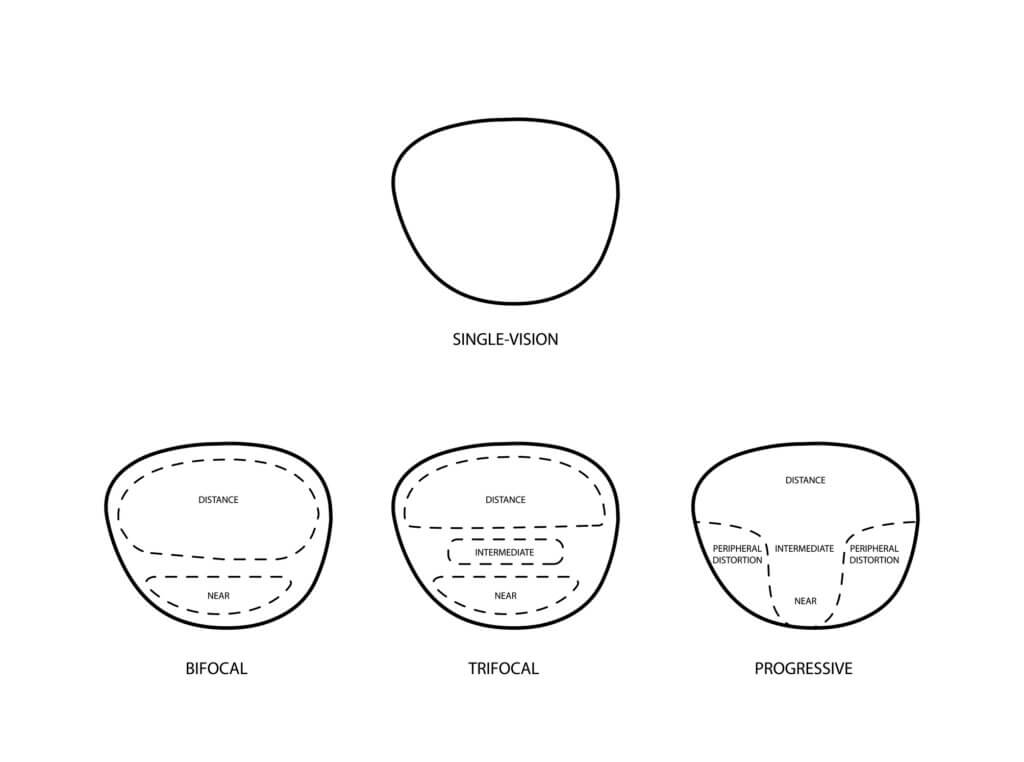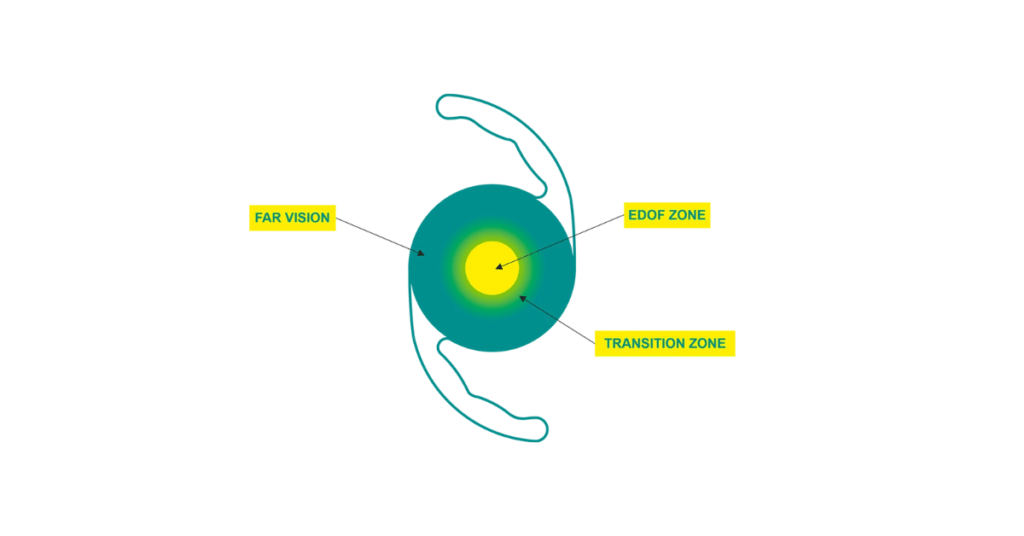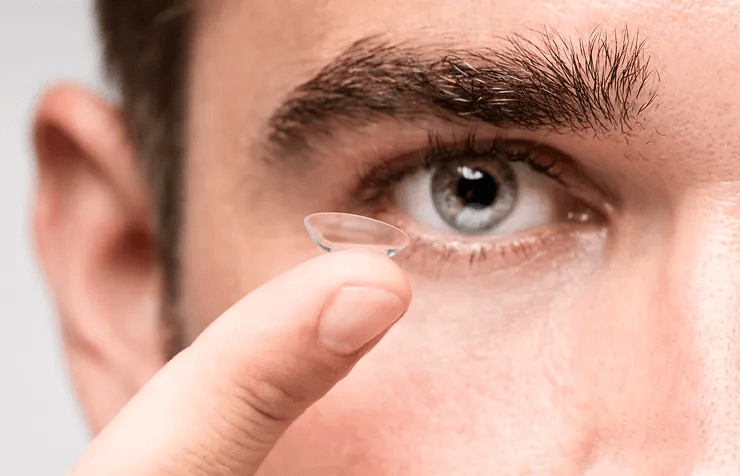Cataract surgery is indeed one of the most common procedures to reinstate vision after removal of the cloudy natural lens and replacement with an artificial intraocular lens, or IOL. A patient needs to determine at this stage the appropriate intraocular lens that ensures the best visual outcomes depending on personal needs.

5 Types Of Lenses For Cataract Surgery
Below are the cataract lens types available for vision correction.
1. Monofocal Lenses

Monofocal lenses are the most common intraocular lenses used in cataract surgery. Monofocal lenses primarily focus on one distance, like seeing clearly at near, intermediate, or far distances. Patients who choose to wear mono-focal lenses will typically still need reading glasses or glasses for computer work. Among cataract surgery lenses types, monofocal lenses are the most widely chosen.
Advantages of Monofocal Lenses
- Sharp vision at a single focal point is usually distance.
- Most insurance plans are covered.
Disadvantage of Monofocal Lenses
- Patients will have to wear glasses for near or intermediate vision.
You can also read: Multifocal Lenses Vs. Monofocal Lenses: Pros and Cons
2. Multifocal Lenses

Multifocal lenses offer different focal distances whereby a patient may enjoy clear vision at near, intermediate, and far distances. This type of lens leads to reduced use of glasses following the surgery of cataracts, hence the reason why most people opt for it so that they can be less dependent on corrective eyewear.
Advantages of Multifocal Lenses
- Near, intermediate, and distance vision are all achieved simultaneously.
- Glasses dependence would be reduced in most instances.
Disadvantage of Multifocal Lenses
- Some patients might experience blurry lights or glare, especially at night.
3. Toric Lenses

Toric lenses are designed to correct astigmatism, a common condition in which the curvature of the cornea is more in the nature of a football rather than in a spherical form and leads to distorted or blurred vision. These lenses have powers differently in various meridians of the lens, correcting the curvature of the cornea.
Advantages of Toric Lenses
- Both cataracts and astigmatism are treated during the same surgery.
- A more lucid and clear vision for people with astigmatism.
Disadvantage of Toric Lenses
- Tends to cost more as compared to usual mono-focal lenses.
- There is a lack of need to wear glasses for other occasions.
4. Accommodative Lenses

Accommodative IOLs work in conjunction with the natural focusing ability of the eye, thus offering clearer vision at different distances than multifocal IOLs. Unlike multifocal IOLs, accommodative IOLs are supposed to move a little within the eye in order to focus on close and distant objects.
Advantages of Accommodative Lenses
- Slightly further and intermediate uncorrected vision.
- Much less reliance on glasses than on mono-focal lenses.
Disadvantage of Accommodative Lenses
- Near uncorrected vision may still require reading glasses.
- The degree of effectiveness may diminish over time as the natural accommodation of the eye weakens with age.
5. EDOF Lenses

It offers a greater range of view for the eyes compared with multifocal lenses: it increases the intermediate and distant vision without causing visual complications such as glare and halos that multifocal lens users sometimes experience. This transitions much easier between the zones of different focuses; thus, there is clearer vision at different distances.
Advantages of EDOF Lenses
- Intermediate vision is better than multifocal, perfect for any computer-dependent sitting.
- Very few visual distortions compared with the multifocal lenses.
Disadvantage of EDOF Lenses
The spectrum around the zone of comfort and out to the near edge may be suitable for wearing glasses when very high near tasks are to be performed, such as reading small print. An IOL also varies by way of one’s lifestyle, desired achievement in vision, and whether or not there is another eye condition.
The best alternative will be discussed after a thorough discussion with the ophthalmologist.
Conclusion
Cataract surgery is now significantly improved with new intraocular lenses advances in technology. Whether looking for independence from eye glasses or just to treat specific problems with vision like astigmatism, there are great diversities of lenses available to fulfill your needs. Discuss your lifestyle and expectations with your surgeon to make the best choice for your vision post-surgery. Additionally, understanding the cataract surgery cost in India is important, as it varies depending on the type of lens used and the complexity of the procedure.

